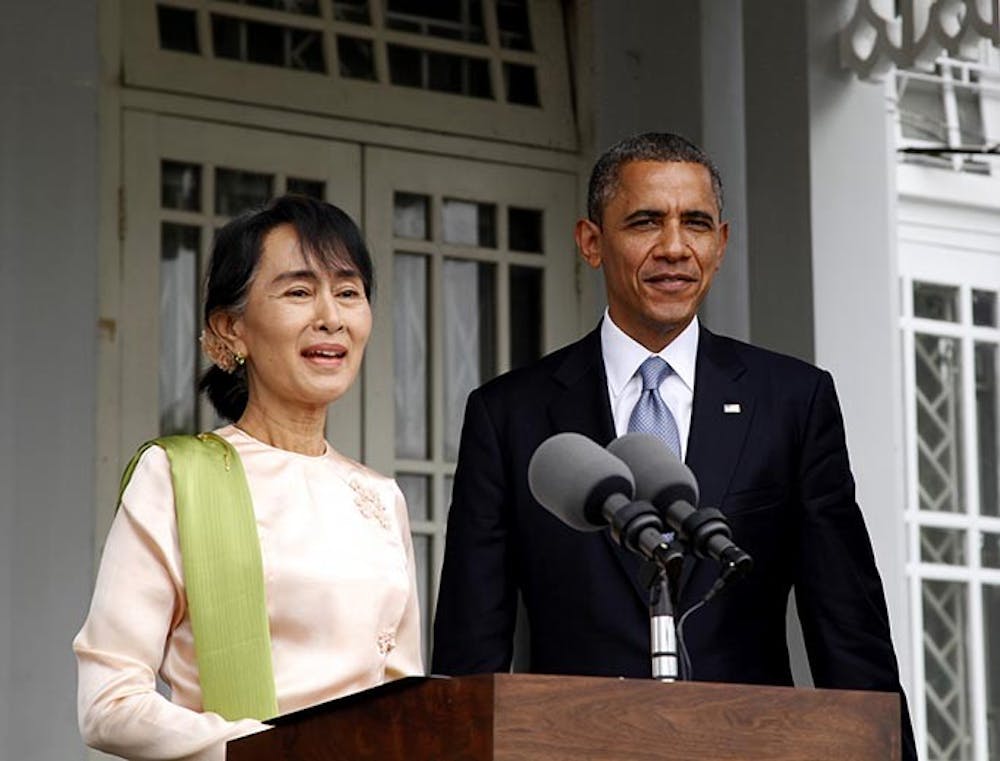Ball State was one of 10 American universities selected by the Institute of International Education to help improve different areas in the Myanmar education system.
Ken Holland, director of the Center of International Development, represented Ball State in a trip to the country last month with the Institute of International Education. He said the American universities made pledges on how they can help Myanmar.
“The deputy minister of higher education told me we really need political science,” Holland said. “We almost all jumped out of our chairs because the military government banned the teaching of political science 30 years ago.”
Holland promised Myanmar that Ball State would help develop their political science curriculum. Details on the pledge are still being worked out, Holland said.
Rose Sing grew up in Myanmar during political turmoil while the military government was taking control of businesses and land. Sing’s parents knew the government couldn’t take away everything.
“My mom said I’m going to give you something the government can never take away, an education,” Sing said. “So out of six of us, there are four doctors, a lawyer and a chemist.”
Being a doctor is what eventually led Sing to the U.S.
“I was a physician in charge of Township and the people came to me to clean up all the wounds so I treated them,” said Sing. “Another person told me ‘You better go before your names comes up as a political enemy.’”
After practicing medicine in the same township for 17 years, Sing said she came to visit the United States on Dec. 14, 1992. She hasn’t returned to Myanmar since coming here 20 years ago.
Many things have changed in 20 years. Sing said when she was last in Myanmar there were no undergraduate students in downtown Yangon, but in the outer edges. Holland said honor undergraduate students are starting to study in downtown Yangon by class.
The United States stopped diplomatic relations with the military-ruled nation in 1990. President Barack Obama announced the U.S. was going to restore those relations while in Myanmar in November 2012.
Sing refers to her home country as Burma instead of Myanmar. The United States government also doesn’t recognize Myanmar as a country. Obama referred to the nation as Burma during his visit in 2012.


